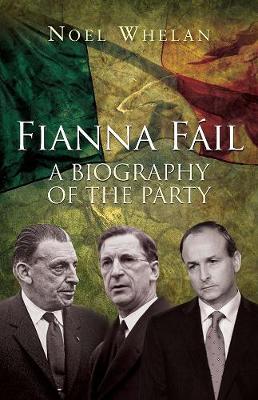The Fianna Fail Party, since it first came to government in 1932, has completely dominated the political life of Ireland.
Fianna Fail has always seen itself as more than a party: more a national movement - and one that represented the nation in microcosm, superseding partisan and regional prejudices. It also managed to be the most ruthless, successful and professional party machine in Europe.
Noel Whelan traces the party's fortunes from its foundation by Eamon de Valera and Sean Lemass in the 1920s, through the economic war of the 1930s, war-time neutrality and the stagnation of the 1950s.
Lemass's governments of the 1960s, generally regarded as the best in the history of the State, restored the country's fortunes, but the 1970s and 1980s were wasted years, dominated by the divisive and charismatic figure of Charles J. Haughey.
Under the later leadership of Bertie Ahern, party divisions were healed, and it seemed that national divisions were healed with them. An economic boom was allowed recklessly to run out of control, with the result that the party, having brought Irish prosperity to a new peak, was blamed for the sudden violence of the crash.
The general election of 2011 reduced Fianna Fail to its lowest ebb since it had been founded. It may not have marked the end of the party, but it clearly marked the end of an era.
- ISBN13 9780717147618
- Publish Date 4 November 2011
- Publish Status Out of Print
- Out of Print 26 March 2021
- Publish Country IE
- Publisher Gill
- Imprint Gill Books
- Format Hardcover
- Pages 384
- Language English
